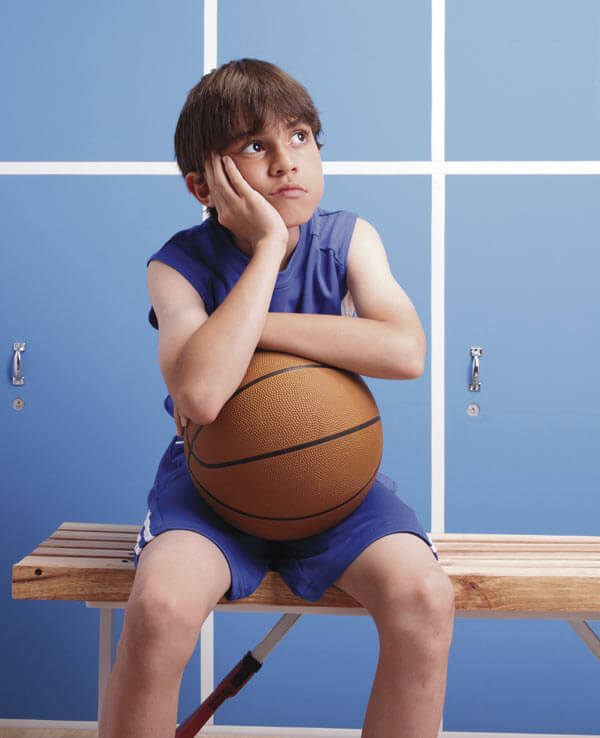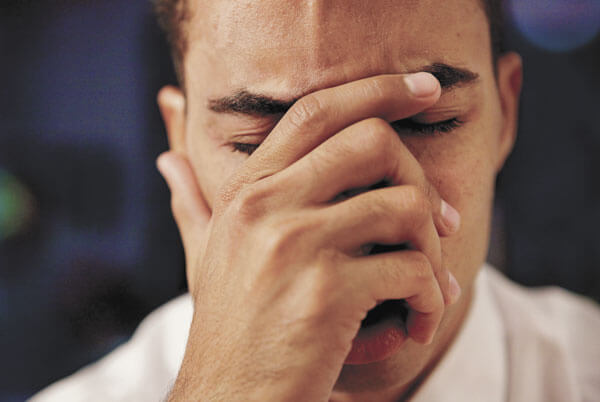
Parental Burnout: What It Is and How to Prevent It
Being a parent is no easy job. And that’s without the sky-high expectations from other parents, social media or even your own perfectionism. There’s a desire to do it all. But the journey to do it all often lands at one destination: burnout.
Every parent has felt burnout at one point or another, and it often sets in when you can’t seem to get a break from the stress.
While burnout isn’t completely avoidable, there are steps you can take to take better care of yourself and try to stop burnout before it sets in fully.
We sat down with Sean Grover, psychotherapist and author of When Kids Call the Shots, and Kendra Wilde, parental well-being expert and host of the podcast “A Little Easier,” about parental burnout, how to prevent it and how self-care can help you be a better parent for your kids.
Psst… Here’s where you and your family can catch an outdoor movie in NYC this summer!
What Causes Burnout in Parents?
One of the major causes of burnout in parents is self-neglect.
“Some parents, they start to sacrifice their own needs for the needs of the child, which is natural, but they go too far,” Grover says.
Parents will neglect things like their physical health, sleep and diet in an effort to prioritize their children, which causes them to “walk down this path of self-neglect,” Grover says. “So as they get further and further into parenting, it becomes more and more difficult to maintain stamina.”
Put simply, the recipe for burnout can be described as “having way too much stress and not enough resources to cope,” Wilde says.
A lack of resources and an almost isolationist or individual approach to parenting is part of the reason why burnout is more common in western nations like the United States.
Wilde says the individual approach to parenting leads to less support from community, which can lead to burnout.
“In societies where there’s more of a culture of being on a team, parents are less burned out because they don’t feel that they should be able to do this alone,” Wilde says.
Other groups that are predisposed to burnout, according to Wilde and Grover, include:
- First time parents
- Perfectionistic parents, or parents that hold themselves to very high standards
- Single parents, or other parents lacking support from a co-parent, extended family, broader social network, etc.
- Parents of children with extra challenges, like medical conditions
- Parents facing financial insecurity or systemic oppression
What Are Some Signs of Burnout That Parents Should Look Out For?
While burnout can feel like it sneaks up out of nowhere, there are some warning signs that you can look for that may indicate that you’re starting to feel burnt out.
Some early signs of burnout can include difficulty concentrating, increased conflict with your partner and irritability.
Beyond that, the three main stages of burnout are:
Chronic Exhaustion
This can look like physical exhaustion or emotional exhaustion.
Emotional Distancing
Wilde describes emotional distancing as “the feeling that you just need to get some space, get some distance from your children so you can preserve your energy.”
Loss of Fulfillment
When in this stage it can be “hard to find the joy in your parenting,” Wilde says. “You just sense that you’re not the parent that you want to be.”
How Can Parents Mitigate Burnout Before It Happens or Work Through Burnout?
Taking care of yourself and taking time to maintain your relationship with your partner are key steps towards stopping burnout before it starts and being the best parent you can be for your child.
“Self care is a vital part of being a parent,” Grover says.
Grover also says that by caring for yourself, you’re also caring for your child.
“When you’re exhausted, burnt out, your mood is affected, your energy level is affected, your health is affected,” Grover says. “How can you possibly be a good parent under those conditions?”
A way to evaluate how self care fits into your everyday life is to rethink and rebalance “the stress and resources equation.”
The first step to this, Wilde says, is to practice more self-compassion and stop striving for perfection at all times.
“We just expect so much of ourselves and society expects so much of us,” Wilde says. “And it’s impossible to do it all and be it all.”
The next step in balancing the stress and resources equation is to take microbreaks when you can. This can include things like taking a short walk or listening to a quick guided meditation.
While these micro breaks may not seem groundbreaking, Wilde says they can make a big difference in the long run.
“Every one of those little micro breaks can make a difference in your ability to show up the way you want to be and the way you want to feel,” Wilde says.
When working through burnout, it’s helpful to think about things you can cut out: how can you shorten your to do list? Are there places where you can ask for help? Where can you say “no” when it comes to adding more to your plate?
Overall, Wilde says it’s important to remember that you don’t have to be a perfect parent. You just need to keep showing up for your kids and continue to make them feel safe and seen.
“If we can just prioritize the relationship with our kids, and let some of the other craziness drop away,” Wilde says. “That can help, too.”
Why Is It Important For Parents to Manage Their Own Mental Health While Caring for Their Families?
Not only does your own mental health have a direct impact on your children’s mental health, but practicing self-care and managing stress provides a good example.
“When we model that, our kids are watching and they’re learning and picking up on all of it,” Wilde says.
Taking care of yourself allows you to foster a positive relationship with the rest of your family.
“We can really focus on the relationship with our kids when we feel and function at our best,” Wilde says.













